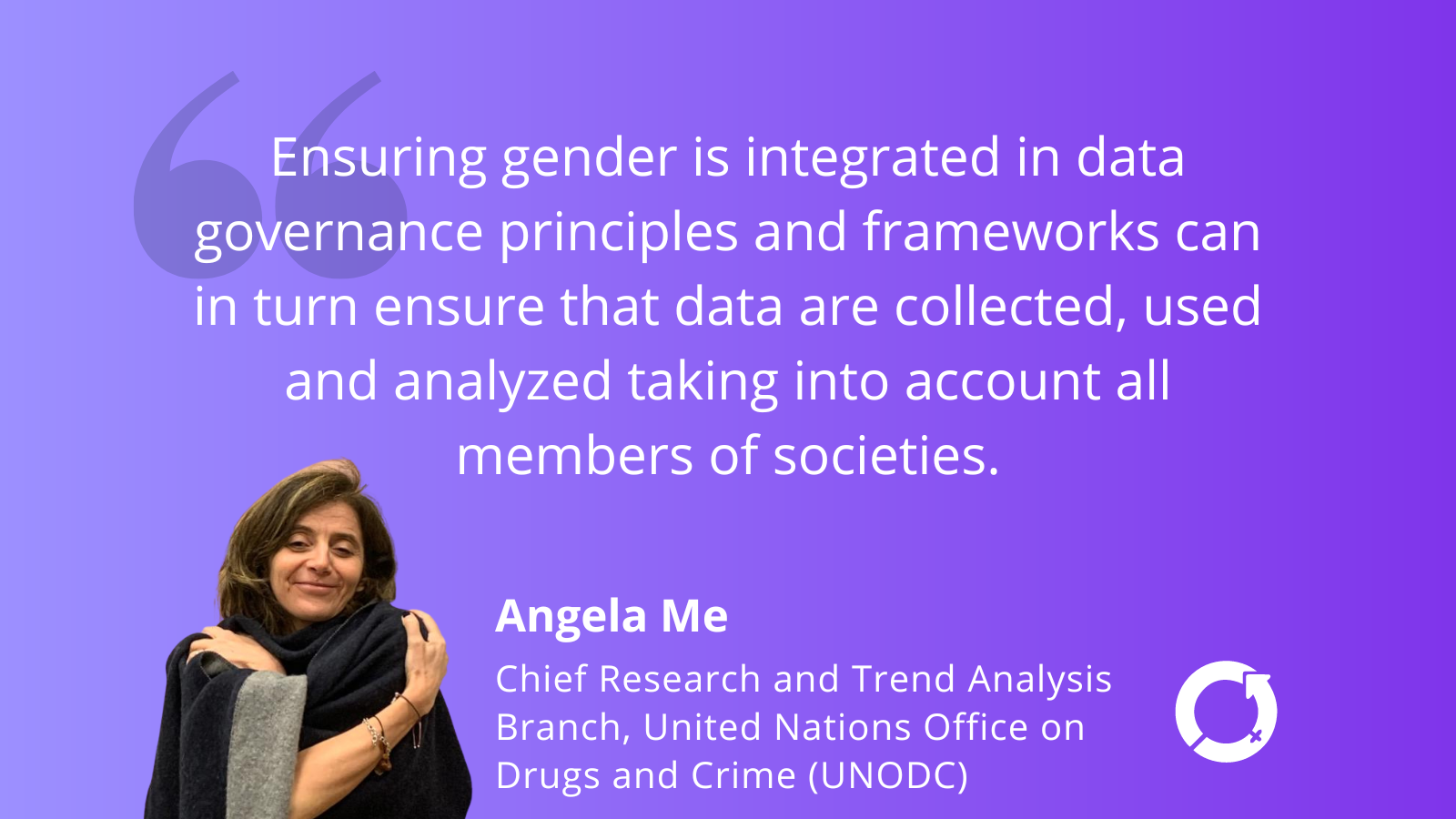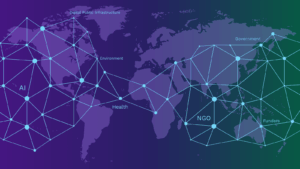On the occasion of International Women’s Day and its 2023 theme #EmbraceEquity, the Datasphere Initiative spoke to a range of policy professionals in the Datasphere Initiative’s global network, to ask them: why equity should be a core goal in policy and technical approaches to responsibly unlocking the value of data?
Angela Me, Chief of the Research and Trend Analysis Branch, United Nations Office on Drugs and Crime shared her perspectives and identified specific actions that can be taken.
Read more about the campaign and other contributions here
In today’s agile and interconnected societies, data are increasingly becoming a public good which can be harnessed to improve society, if appropriate tools and mechanisms are available. In order to achieve this, we need to tackle inequalities in existing data collection systems. Ensuring gender is integrated in data governance principles and frameworks can, in turn, ensure that data are collected, used, and analyzed taking into account all members of societies. For example, women’s impact on the economy in sectors such as business, agriculture, and industry, but especially in the informal sector as domestic or unpaid care workers, needs to be accurately reflected in official labour market statistics. Sex-disaggregated data and gender-responsive statistical tools can help to ensure that we can measure all forms of gender-based violence experienced by women and design effective responses. Unlocking the value of data can help make visible women’s experiences and contributions.
The United Nations Office on Drugs and Crime and UN Women have developed a statistical framework to measure the gender-related killing of women and girls. Official statistics often do not capture the gender-related motivation of homicide. While men and boys make up the majority of homicide victims, most female homicides are gender-related killings. The tool was developed to measure the true scale of such crimes and inform more effective policies addressing this extreme form of gender-based violence. UNODC and UN Women are making efforts to generate a better understanding of gender-related killings through support to countries to implement the framework.
Angela Me is the Chief of the Research and Trend Analysis Branch at the United Nations Office on Drugs and Crime where she oversees global, regional, and national research in the areas of drugs and crime. She is responsible for global reference research publications such as the World Drug Report, the Global Report on Trafficking in Persons, the Global Study on Homicide, and the World Wildlife Crime Report. While working for the United Nations since 1995, she has supported countries to improve their statistical and analysis systems, and she has authored, contributed, and supervised the production of UN analytical reports, international statistical standards, discussion papers, and inter-governmental documents in the areas of drugs, crime, population, gender, disability, and migration. She has served on the Scientific Committee of the European Agency for Fundamental Rights. As an Italian national, Ms. Me holds a Ph.D. in statistics from the University of Padua in Italy.




